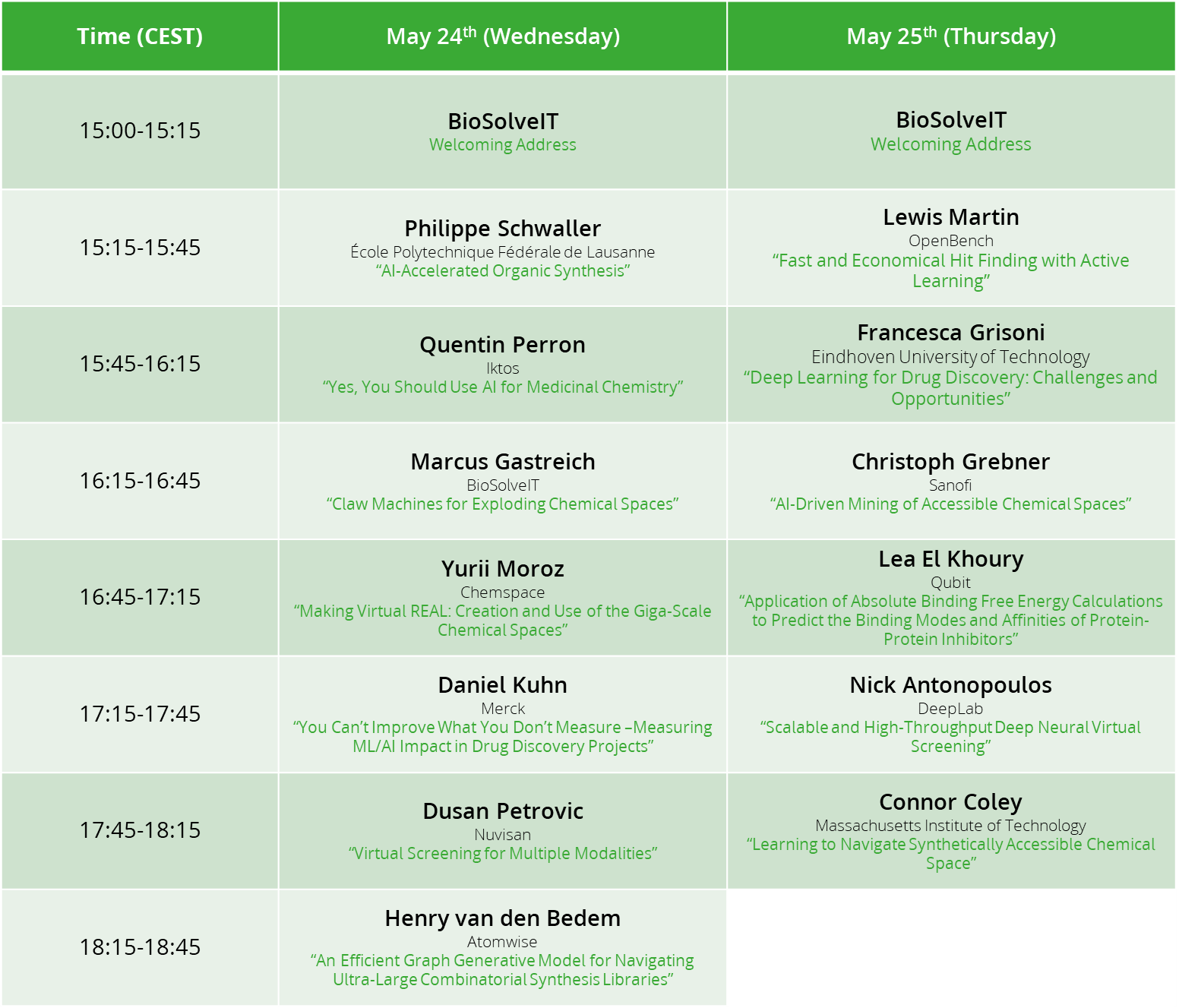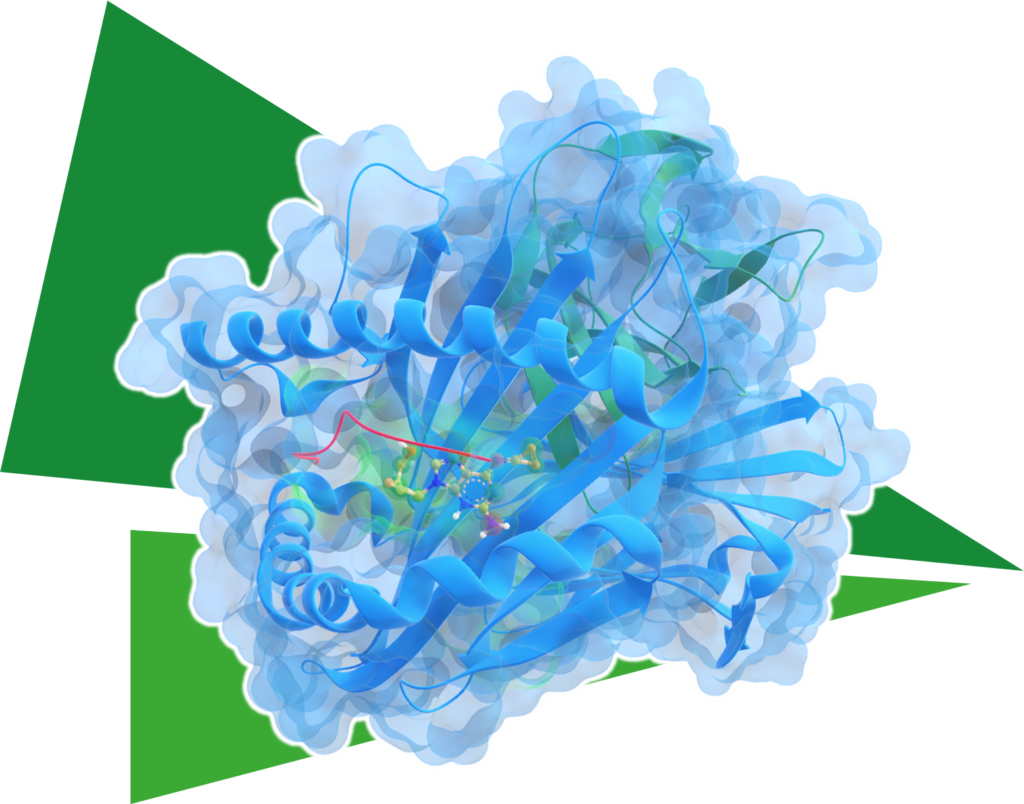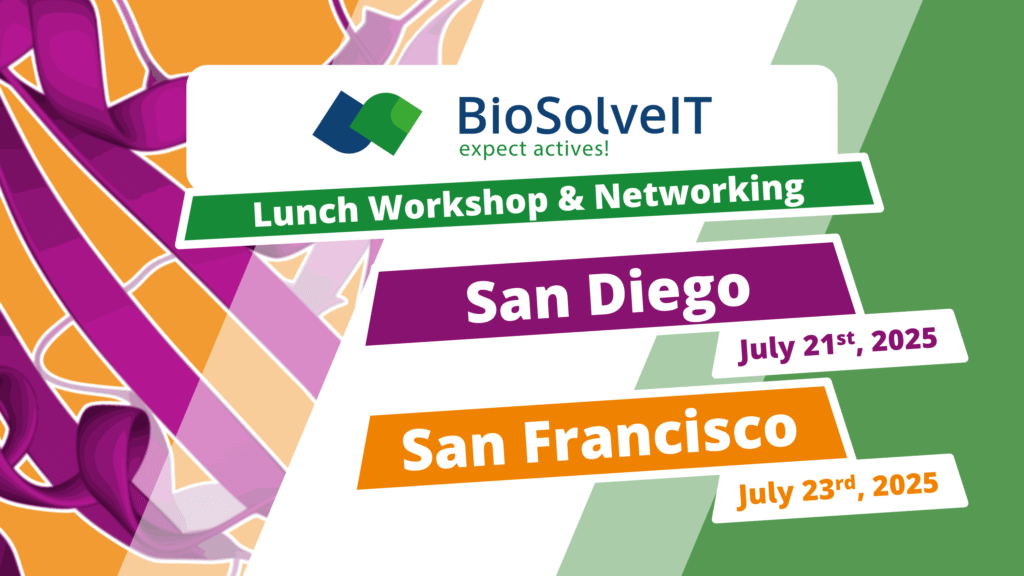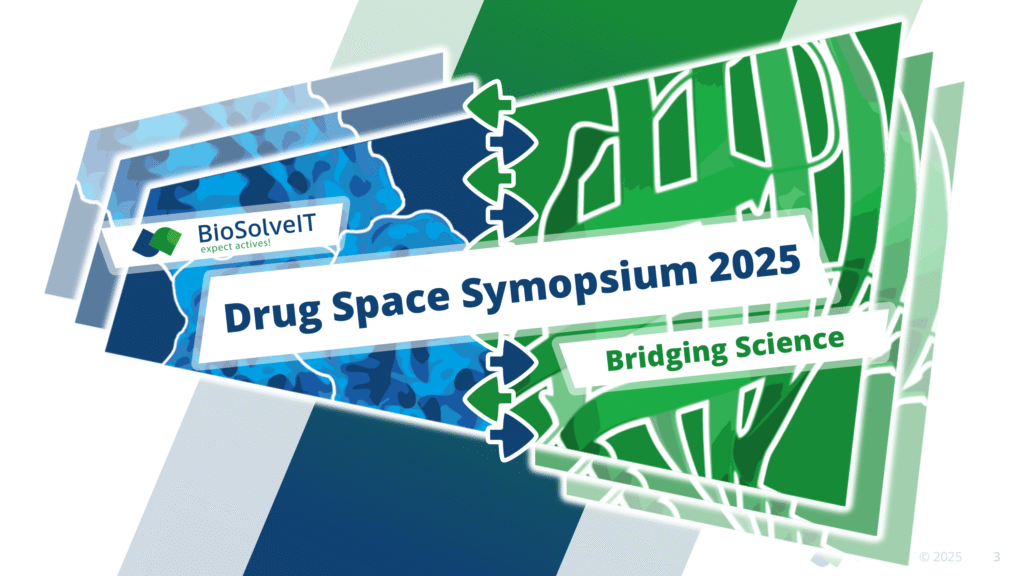Connect the Dots for Future Drug Discovery
In our third virtual BioSolveIT DrugSpace Symposium, focus is placed on the recent trends that transform modern drug discovery: machine learning, artificial intelligence, neural networks, and processing big data.
Can recent developments live up to the hype around AI, or is there still a long way to go? This event brings researchers together who aim to discover future drug candidates from a myriad of data flows. An exciting journey lies ahead of us!
Medicinal chemists, decision makers, representatives of crop-, pharmaceutical-, and medicine-related businesses, undergraduates and PhD students, researchers — simply anyone interested in future technologies and state-of-the-art drug development — you are cordially invited to participate in this virtual event. Again, this BioSolveIT Symposium aims to be accessible to the entire global research community; BioSolveIT takes pride in thanking all brilliant speakers and participants for their contribution to the event in advance.
The third DrugSpace Symposium takes place on 24 and 25th May, 2023 — starting daily at 3 pm CEST/Berlin. Registration and participation is free-of-charge.





